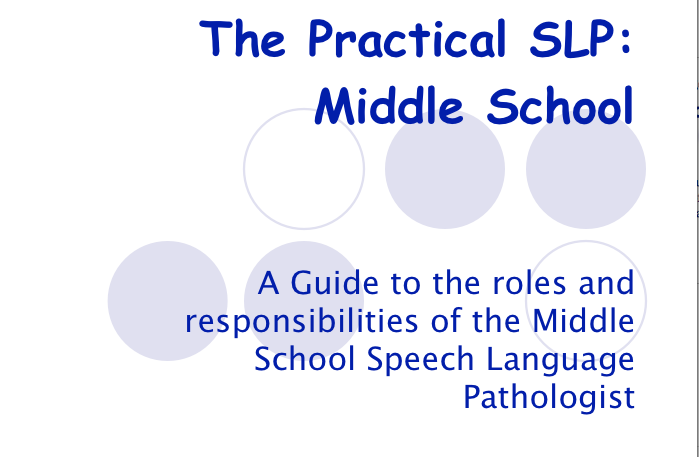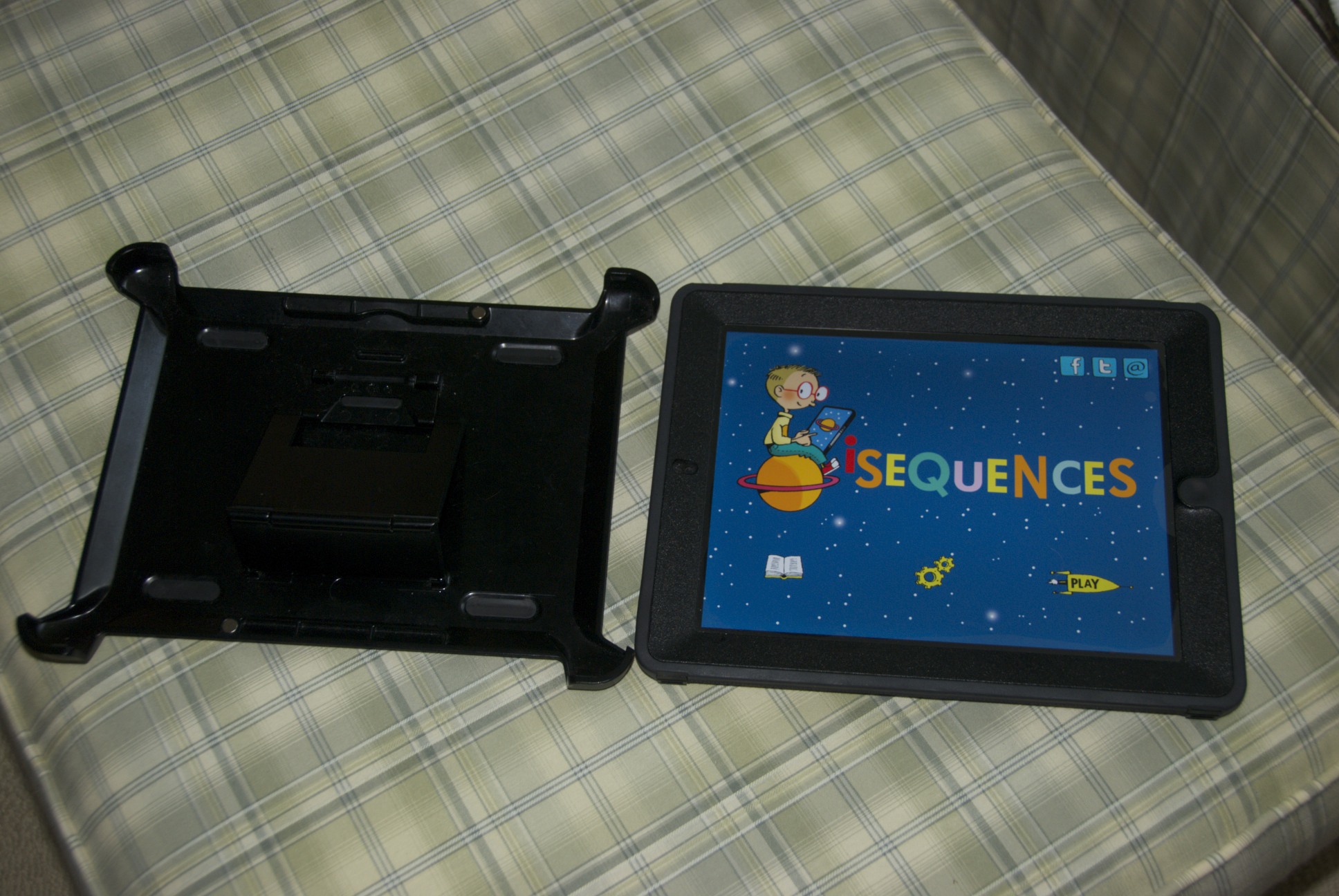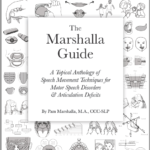Parent Information
This page is designed for parents who have questions about the child’s speech and language development. Please visit my other pages too, especially Your Middle Schooler even if your child is years away from the tween years. Please contact me if you have any specific questions or need information in any specific area of speech and language development.
Teresa
A Fun Little App
I created this using an app call Cloudart. My students had a lot of fun with it this week. I used it to work on categories, word retrieval and articulation. I purchased it for 99 cents through the iTunes store. This app is quick enough to use in a half hour session, even if the kids did some of the typing. It’s a fun little creative outlet for those of us who aren’t too creative. You can type in words or download a web sit like I did here. This is what appeared after I downloaded The School Speech Therapist into the app. In therapy the kids loved it and Cloudart will be something I keep on my iPad.

This one will be staying on my iPad!
Teacher leaves teaching to fight common core
This is a link to an article on Diane Ravich’s blog.
I hope the powers that be start listening.
Middle School Nerves
It’s that time of year again, school here in the northeast is getting ready to start. For some kids the start of a new middle school experience is exciting and for others it can be a very nervous time. If you’ve ever smelled a group of school full of 6th grade students during the first few days of school you’d realize this. My advice to parents is to be supportive, ask a few probing questions, not too many. Make sure you ask about any concerns they might have expecially around school work and peer relationships. However, keep in mind middle schoolers are also worried about simple things like, being able to open a locker and knowing where to go.
A few years ago, I reviewed the book A Smart Girl’s Guide to Starting Middle School. I think it gave some very practical information and strategies for middle schoolers in general. I wish ther was a boys version of this book.
This week I also received this link in an email 20 Blogs with the Best Tips for New Middle Schoolers. I haven’t had a chance to look over all the information or sites, but the titles are relevant.
Kiss your babies goodbye when the leave for middle school but keep in mind they still need you to be involved, just on a different level.
The Practical SLP: Middle School
Back in 2007, when I was taking a computer course and needed to put some teacher training together I chose to write about the roles and responsibilities of the School Speech Language Pathologist. It was a nice introduction for the teachers and for those who paid attention, I think they learned something about our field. This was just before RTI, core curriculum and the new teacher evaluation process took over. Reflecting on what I wrote 6 years ago, our job hasn’t changed that much…..it’s just been added to. So take a look, please note the word “Practical” in the title. At the time when all these changes were looming I thought it was appropriate (and still do). The Practical SLP powerpoint 2007 copy
Teresa
Protecting your electronics.
When I purchased my iPad, I knew I wanted to use it in therapy. I also knew I did not want to have to worry about it breaking, being dropped or just plain mishandled. Walking out of the Apple Store, I walked right over to the cart in the mall that installed Ghost Armor. For those of you who don’t know Ghost Armor is a plastic sheet that is applied to the screen of your phone or iPad. I’ve used Ghost Armor on my phone for years and never experienced a cracked or scratched screen. Ghost Armor has to be cured under a black light for a few moments but they will usually do it while you wait.
For the first few days I used my iPad without a case, then with a simple but cute notebook case borrowed from a friend. I also tried the traditional cover. I was just not comfortable handing over an expensive piece of equipment to a 5 year old. So I needed to find a better solution that would allow me to relax.
After a little bit of research, I went with with the big kahuna of iPad cases, the Otter Box. It cost a little more but was worth every penny since all my worries of iPad destruction went away. Given it has a plastic cover, my Ghost Armor was probably unnecessary. I now have no qualms about handing my iPad over even to my most youngest or lest coordinated students and letting them pass it to each other. The other good thing about the Otter Box is that I can use just about anything to clean it. Given that everyone is touching it, breathing on it, coughing on it, and in our field sometimes drooling on it, I know I can clean it with a sanitizing wipe or spray easily.
One questions therapists have raised is if there is distortion to the screen when using an Otter Box Case. I’ve never experienced distortion or inaccuracy when touching the iPad. The Otter Box also has a simple prop up stand that adjusts to two levels, one is perfect for typing.
If you really want to feel your electronics are protected when your students are handling them, an Otter Box is the way to go. I’ve since handled other cases. I just don’t think they would provide the same protection if a child was to drop the iPad/iPhone. Yes the Otter Box makes the iPad somewhat bulky but it still easily slips into my bag and I don’t have to worry about how I stow it.
Schools need a timeout…….
I recently found this opinion article through the Race to Nowhere Facebook page. “Schools need a timeout on standardized tests”
This is an opinion piece by Joshua P. Starr, superintendent of Montgomery County Public Schools in Maryland. Sometimes others say the exact things you are thinking. There are three sections in his article that really struck a cord with me.
“Most U.S. public school systems are attempting to implement at least three things at once right now: revamped accountability measures, reforms as part of the federal Race to the Top program and the Common Core State Standards. This is simply too much at one time.”
I’ve worked in a few different school systems the past 7 or so years and all the changes are just too much at once. When, not if (in my opinion) the new reforms fail there will be no way to figure out which parts work and which parts don’t. This has been the history of failing education reforms. Schools tend to change things dramatically rather than work the problem.
“But these same state-level departments have been hurt by the recent fiscal crisis. Moreover, they are beholden to legislators and executives whose assumptions about public education make them more likely to endorse a continued over-reliance on standardized tests to evaluate schools and educators.”
Schools have not been given the funding, time or training to make many of these changes possible. The people making the decisions on curriculum, funding and judging success probably have little background in child development and education. In my opinion, child development is hugely overlooked and that’s one of the reasons our special education numbers are so big.
“This includes teacher evaluation systems that rely too heavily on individual student performance on the current state standardized tests — a practice I vehemently oppose.”
Classrooms and kids are more than just numbers and data. If one teacher has more special education students, more kids in crisis or more kids without home support, their scores on any classroom assessment are going to be lower no matter how gifted the teacher is. There has to be a better way.
I’m not happy with the changes I’m seeing in education and I know it is affecting our students in a negative way. In general, I see a lack of memory skills, lack of automaticity with facts and general information, poor phonological skills, decreased processing speeds, poor critical thinking skills and a general lack of background knowledge with typical students. Schools are so worried about taking data (because they have to) that key teaching opportunities are missed or there is no time in the day to take them. Changes are needed, but across the board and all at once isn’t the answer. Students and schools in different areas of the country have different needs and different problems. Some school systems are actually dumbing down their curriculum to meet Common Core Standards, others are trying to figure out how they can do this all at once and a few schools are just saying we can’t do this and handing themselves over to the state.
Schools need good curriculums to turn out good productive citizens. Losing time to practice test taking and learning a curriculum based upon a test is not going to improve or prove anything.
Never miss an opportunity to learn from another professional
College can give you a good foundation but the real learning comes once you start working. And if you’re smart you’ll learn from everyone you work with, colleagues and clients.
When I started working in early intervention 20 some years ago, I knew little about child development, family issues or caseload management. So I faked it for awhile until I was able to watch, listen and learn. Luckily it was a job where we talked and consulted a lot. We did arena assessments where one person facilitated and the rest of us observed. I was able to watch, listen and read the final reports of all professionals involved. Now that I look back I was lucky to find a first job where people really respected what you had to say and at least considered your recommendations.
During those years I watched and listened not only the other speech therapists on staff but the physical therapists, occupational therapists, nurses and social workers. The information I gathered in those two years has served me well throughout my years of working in the public schools. The biggest lesson I learned in Early Intervention was to always listen to what other people have to offer, consider their view point and if the information makes sense use it or at least remember it.
These days it pains me when I sit in team meetings and see no one taking a note as the school psychologist gives her report and recommendations, I want to stand up and yell “Write this down, this is good stuff, it will help you understand the students learning style!” In team meetings it isn’t just classroom teachers that need to take notes. If principals and vice principals were smart they would be taking notes too, so when an issue arises they can refer to the notes when dealing with special needs children and parents. When you sit in a team meeting as a passive member you are missing out on a learning opportunity. Not to mention when you also look passive or even uncaring to the parents.
Within the public schools, services can often seem so fragmented. The team meeting is one of the few scheduled opportunities to listen to and collaborate with your colleagues. Beyond that there is often little time to consult with others working with a student. However, another thing I noticed is that everyone is often on their own agenda, “only do what I have to do with the student to achieve my goal.” When you walk into a classroom and see none of the recommendations that specialists have suggested in place, you have to wonder if the teacher was listening or even considering making changes.
More than likely four things may have happened that keep the teacher from implementing accommodations, either the teacher was not present when you made recommendations in student meetings, the teachers did not even take note of your recommendations, the teachers are so overwhelmed with what they have to do it’s impossible to carryout or remember even the simplest accommodations or they have little understanding of the child’s disability or needs.
I have worked in schools where they made the teachers an important part of the meetings (hiring a sub so they could attend) and in schools where teachers buzzed in said their piece and buzzed out. When the school allows or even requires the teachers to stay in team meetings they have a much better understanding of the specialists roles and recommendations. How can you expect teachers to understand a child’s disability or unique learning style when they weren’t even there to learn from the specialists. If I was the parent I would either question or at least wonder why my child’s teacher is not present to hear this valuable information.
Like I mentioned above. I’ve sat in many meetings where not one person (other than myself) is taking notes on what any the specialists have to say, nor did they take a copies of the reports. What does that say. It says they are not taking the opportunity to learn from another professional. When learning from other professionals isn’t encouraged, it not only disrespects everyone involved but in the end the child loses out.
Are you really a co-teacher or just a glorified aid
ATTN: Now please understand I don’t mean to ruffle anyones feathers with this article. I know there are a lot of therapists who don’t agree with my position. If you have a co-teaching model or push-in therapy model that really works for your student, not for you, your schedule, your high numbers or your administration, please share it in the comments section. Please share not only your model but how the model evolved and your caseload. I base my perspective on my experiences and those who have shared their experiences with me.
The past 10 years or so there has been a big push for therapists to use a co-teaching or push-in model. I have no clue where this idea came from and I don’t feel like doing the research. I honestly think one morning someone (who does not work directly with kids) woke up and said wouldn’t it be great if the speech therapists saw their students in the classroom.
On the surface that sounds like a great idea. You have a speech language pathologist come into the classroom, imagine what they could offer. An actually if it was a true co-teaching model where the speech language pathologist worked in tandem with a classroom teacher, they planned together, delivered lessons together and evaluated the students together, that could be great. What has happened, is that therapists are being asked to provide in-class services, either planning a class activity for that time or just going in and hoping they can somehow integrate themselves into the class for that one half hour a week. On paper that too is called co-teaching (apparently co-teaching on paper looks good to the powers that be). Oh did I forget to mention that in some situations therapists are expected to do this in every single classroom.
The problem I have always had with therapists as co teachers is that we are usually told “just do it” without any regard for the student’s needs, a lack of understanding of our level of expertise, a lack of respect for what we can realistically offer, a lack of co-planning time, scheduling constraints, teachers that aren’t willing to coordinate, no planned way to measure effectiveness and no training. I have never felt that I have been able to offer my language disabled students the level “therapy” they need in the classroom setting. Never have I worked in a organized co-teaching model.
There have been times when the teachers not only ignored me in the classroom but ignored the fact that I am there to work with or at the very least observe particular students. With that said there have also been some wonderful teachers who will switch thing up a little when they see me come in to accommodate my limited time. Even with accommodating teachers, without sufficient planning and evaluation time, a therapist going into a classroom is usually no more than a glorified aid. Being a glorified aid makes my job very easy. There have been times when I have only had one or two direct or indirect interactions with my student during my 30-45 minutes in the classroom. That hardly gives me time to address or observe my goals and objectives.
I don’t really think the disconnect is so much between the teachers and the therapists, most of us are willing to learn new methods, if they’re effective. I believe the problem lies between the administration/school board and their lack of understanding about how schools work, special education and how children learn. It somehow sounds better if a school says they use a co-teaching model. Most people don’t understand how loosely that term is used.
Here is a link to 6 different types of co-teaching models. http://faculty.felician.edu/caseyb/Types%20of%20Co-Teaching%20notesheet.doc. Take a look at it and see where the services at your school fall. I can’t cite the author because there isn’t one. Another site claims 5 co-teaching models http://trailblazers.wikispaces.com/file/view/co_Teaching_Models-W.pdf. I guess my point is even people who feel strongly about co-teaching haven’t decided the best way to go. Again no author cited.
I was a huge fan of co-teaching when it was first introduced 20 some years ago. However, most schools have never been able to put in the time, energy or resources necessary to make it work. So my observations conclude that kids often miss out on valuable “therapy” time, when services are delivered within the classroom setting. That’s not to say that when they are ready to integrate newly learned skills that they can’t benefit from some services provided within the classroom setting. (then we get into scheduling issues so lets not go there).
Speech language pathologists really need to look at their overall effectiveness within the classroom setting. Are the student’s need being met? That’s the key question. If your answer to this is “no” then congratulations, you’ve become a glorified aid.
Games Can Be Fantastic Therapy Tools
I have always said that I can turn or modify any game into an educational experience. Me at my advanced years was thinking only about board games. Over the years I’ve been able to teach almost every single language skill through conventional games. Unfortunately, those days are numbered because it’s hard to collect data when your having fun.
I was extremely pleased when I came across this article on Geekslp.com Angry Birds Educational Tool. This article truly validates what I already know. I am so glad the younger generation of SLP’s are able to see the value of games in learning. I love angry birds but never even thought to bring it into my therapy as a tool but I have used it as a reward. Why I never thought of this I don’t know. This article presents an excellent perspective and shows just how creative speech language pathologists can be.
Reality is kids just don’t know how to play anymore. Our students are usually at an even bigger disadvantage for knowing how to initiate play with others, feel successful and how to accept wins/losses gracefully. Anytime we play a game with our students we are providing a learning experience that they will not get from their peers or even their parents.
I actually have a whole section on my blog called Modify that Game, which I will admit is dated with it’s information. Still the point is there, games can have educational value.
My last article on gaming was back in June.
I was following up on an article a friend sent me. Basically I said that video games are good but you would still need a skilled teacher to fill in the gaps. I’m not a video gamer so I reserved making any harsh judgements.
However, I was writing about the importance of play long before that. The Importance of Play
I am still amazed at the number of children I encounter that truly don’t know how to play and I’m not just talking about our language disabled kids. Kids are so managed these days that they are loosing their negotiation skills, critical thinking skills, imaginations, flexibility with interpersonal skills and play skills.
Recently an SLP contacted me to tell me that she was not allowed to use games in therapy any more. I thought how sad that we’ve gotten to the point where fun had to be squashed in order to make sure kids pass a test or that enough data gets collected. I figured that was the reason or that their administration was nuts.
Enjoy the articles highlighted above, put a little bit of fun into your therapy setting, worry about data collection around progress report time. Modified games can play a huge role in therapy not to mention increase motivation. Funny that it’s more accepted if the games are presented on the computer or iPad that out of a dusty old box. However, games are much easier to modify out of the dusty old box. Personally I can see the value in both conventional games and some computer games/apps. Just like conventional games and therapy games, there are a lot of junky computer games and apps that are not worth even trying out.










